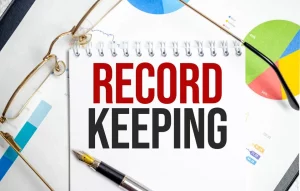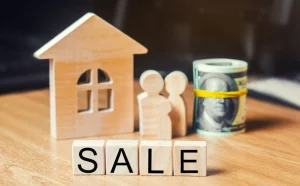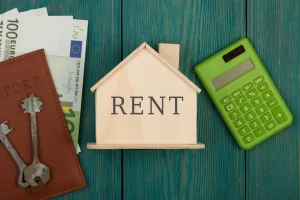Owning a second home can be a fantastic method to enjoy a vacation property or generate rental income. Still, it’s essential to be aware of the tax implications that come with it. Understanding how taxes work when owning a second home is necessary to avoid penalties and maximize the financial benefits of your investment. In general, owning a second home can impact your tax situation in several ways. For example, you may be eligible for tax deductions related to mortgage interest, property taxes, and rental-related expenses. However, owning a second home can also trigger capital gains taxes if you want to sell the property or create tax challenges if you rent it out. If you’re going to navigate the tax implications of owning a second home, this article will provide some essential tax tips for second-home owners. We’ll also cover the difference between a second home and a rental property, the importance of keeping accurate records, how to take advantage of tax deductions, and the tax implications of selling or renting out your second home.
Before diving into tax tips, it’s essential to understand the difference between a second home and a rental property. A second home is a property you use primarily for personal enjoyment, while a rental property is one you rent out to others for a profit. The tax treatment for each property type is different, so it’s crucial to understand how the IRS distinguishes between them. For example, if you rent out your second home for over two weeks per year, the IRS considers it a rental property. In this case, you must report the rental income on your tax return, but you can also deduct rental-related expenses, such as property taxes, mortgage interest, insurance, and repairs. However, if you use the property for personal purposes for more than 14 days per year or more than 10% of the total rental days, you can only deduct a portion of the expenses based on the time the property was rented out.
Keeping accurate records is essential for maximizing your tax deductions and avoiding problems with the IRS. You should keep track of all income and expenses related to your second home, including rental income, property taxes, mortgage interest, repairs, and maintenance. You should also keep receipts and invoices for all expenses and maintain a detailed log of the dates you use the property for personal purposes.

Are you looking for Bronx Tax Services? Are you upset about tax problems or IRS trouble? The best solution is SCL Tax Services in & near Bronx, NY. We offer business taxes, payroll services, tax accounting, bookkeeping services, and many more. Our tax professionals are experienced enough to help you throughout tax preparation and provide insightful information to make better decisions in the future. Qualified tax accountants are with us; they have enough IRS knowledge to give you the best practical tips. Customer satisfaction is our most important goal, and we try hard to achieve that. Contact our tax office immediately to enjoy the best!
As a second-home owner, you may be eligible for several tax deductions, including:
Mortgage interest deduction: If you receive a mortgage from purchasing your second home, you could deduct the interest paid on loan up to a limit of $750,000 in mortgage debt. However, if you rent out the property, you can only remove the claim related to the portion of the property used for rental purposes.
Property tax deduction: You can subtract property taxes paid on your second home as long as the property is not classified as a rental property.
Home office deduction: If you use your second home for business purposes, you may be eligible for a home office deduction. However, you must use the property regularly and exclusively for business purposes to qualify.

second-home owners must consider the tax implications of renting out their property. When you rent out your second home, you become subject to rental income tax and must report any income from renting the property to the IRS. However, you can also take advantage of several tax deductions related to rental expenses, such as repairs, maintenance, property management fees, and depreciation. It’s important to note that if you rent out your second home for over two weeks per year, the IRS considers it a rental property, and you must report the rental income on your tax return. You can deduct rental-related expenses but only up to the rental income received. Any excess costs cannot be used to offset other income, but you can carry them forward to future tax years.
Additionally, renting out your second home may trigger other tax implications, such as local occupancy or sales taxes, depending on the property’s location. Researching and compliance with applicable tax laws are essential to avoid penalties or legal issues. Lastly, renting out your second home may affect your eligibility for certain tax benefits, such as the home sale exclusion. If you rent out your second home before selling it, you may not qualify for the total exclusion on capital gains taxes, as you must have used the property as your primary residence for at least two of the previous five years. Therefore, tax consulting with a professional before renting out your second home is crucial to understand the tax implications fully and plan accordingly.

Are you looking for professional tax services in the Bronx, NY? SCL is the best choice due to its uniqueness and years of experience. We at SCL Tax Services provide quality services that meet your needs and expectations. Customers are the primary assets of our company, so customer satisfaction is our ultimate goal. We do our best to include the latest trends and technologies in our services. Affordability is another crucial feature that you can experience with us. We provide all-in-one packages for every client in a way that highly meets expectations. You will fall in love with our staff and services, and everything is prepared for you to have fun. Our tax professionals are always ready to help; Contact us now.
We are here to relieve you of the tax pressure by offering a wide range of Tax Services In & Near Bronx, NY. If you need expert advice or need us to complete your taxes, we will provide it for you. We know you work hard, so we work hard to serve your needs.
Your time is valuable, which is why we are here for you.